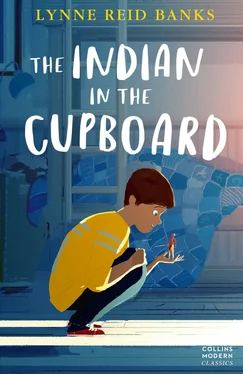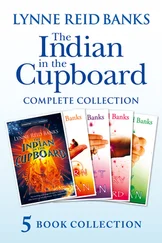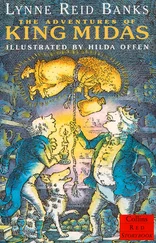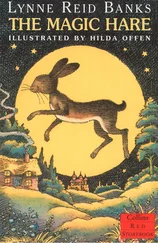The Indian took a bite. He still looked very suspicious, but he ate and ate. He couldn’t finish it, but he evidently liked it.
“Give meat,” he said finally.
“I’m sorry, I can’t find any tonight, but I’ll get you some tomorrow,” said Omri.
After another grunt, the Indian said, “Drink!”
Omri had been waiting for this. From the box where he kept his Action Man things he had brought a plastic mug. It was much too big for the Indian but it was the best he could do. Into it, with extreme care, he now poured a minute amount of Coke from the huge bottle.
He handed it to the Indian, who had to hold it with both hands and still almost dropped it.
“What?” he barked, after smelling it.
“Coca-Cola,” said Omri, enthusiastically pouring some for himself into a toothmug.
“Fire-water?”
“No, it’s cold. But you’ll like it.”
The Indian sipped, swallowed, gulped. Gulped again. Grinned.
“Good?” asked Omri.
“Good!” said the Indian.
“Cheers!” said Omri, raising his toothmug as he’d seen his parents do when they were having a drink together.
“What cheers?”
“I don’t know!” said Omri, feeling excessively happy, and drank. His Indian – eating and drinking! He was real, a real, flesh-and-blood person! It was too marvellous. Omri felt he might die of delight.
“Do you feel better now?” he asked.
“I better. You not better,” said the Indian. “You still big. You stop eat. Get right size.”
Omri laughed aloud, then stopped himself hastily.
“It’s time to sleep,” he said.
“Not now. Big light. Sleep when light go.”
“I can make the light go,” said Omri, and switched out his bedside lamp.
In the darkness came a thin cry of astonishment and fear. Omri switched it on again.
The Indian was now gazing at him with something more than respect – a sort of awe.
“You spirit?” he asked in a whisper.
“No,” said Omri. “And this isn’t the sun. It’s a lamp. Don’t you have lamps?”
The Indian peered where he was pointing. “That lamp?” he asked unbelievingly. “Much big lamp. Need much oil.”
“But this isn’t an oil lamp. It works by electricity.”
“Magic?”
“No, electricity. But speaking of magic – how did you get here?”
The Indian looked at him steadily out of his black eyes.
“You not know?”
“No, I don’t. You were a toy. Then I put you in the cupboard and locked the door. When I opened it, you were real. Then I locked it again, and you went back to being plastic. Then—”
He stopped sharply. Wait! What if – he thought furiously. It was possible! In which case …
“Listen,” he said excitedly. “I want you to come out of there. I’ll find you a much more comfortable place. You said you were cold. I’ll make you a proper tepee—”
“Tepee!” the Indian shouted. “I not live tepee! I live longhouse!”
Omri was so eager to test his theory about the cupboard that he was impatient. “You’ll have to make do with a tepee tonight,” he said. Hastily he opened a drawer and took out a biscuit tin full of little plastic people. Somewhere in here was a plastic tepee … “Ah, here!” He pounced on it – a small, pinkish, cone-shaped object with designs rather badly painted on its plastic sides. “Will this do?”
He put it on the shelf beside the Indian, who looked at it with the utmost scorn.
“ This – tepee?” he said. He touched its plastic side and made a face. He pushed it with both hands – it slid along the shelf. He bent and peered in through the triangular opening. Then he actually spat on the ground, or rather, on the shelf.
“Oh,” said Omri, rather crestfallen. “You mean it’s not good enough.”
“Not want toy,” said the Indian, and turned his back, folding both arms across his chest with an air of finality.
Omri saw his chance. With one quick movement he had picked up the Indian by the waist between his thumb and forefinger. In doing this he pinned the knife, which was in the Indian’s belt, firmly to his side. The dangling Indian twisted, writhed, kicked, made a number of ferocious and hideous faces – but beyond that he was helpless and he evidently knew it, for after a few moments he decided it was more dignified to stop struggling. Instead, he folded his tiny arms across his chest once again, put his head back, and stared with proud defiance at Omri’s face, which was now level with his own.
For Omri, the feeling of holding this little creature in his fingers was very strange and wonderful. If he had had any doubts that the Indian was truly alive, the sensation he had now would have put them to rest. His body was heavier now, warm and firm and full of life – through Omri’s thumb, on the Indian’s left side, he could feel his heart beating wildly, like a bird’s.
Although the Indian felt strong, Omri could sense how fragile he was, how easily an extra squeeze could injure him. He would have liked to feel him all over, his tiny arms and legs, his hair, his ears, almost too small to see – yet when he saw how the Indian, who was altogether in his power, faced him boldly and hid his fear, he lost all desire to handle him; he felt it was cruel, and insulting to the Indian, who was no longer his plaything but a person who had to be respected.
Omri put him down gently on the chest-of-drawers where the cupboard stood. Then he crouched down till his face was again level with the Indian’s.
“Sorry I did that,” he said.
The Indian, breathing heavily and with his arms still folded, said nothing, but stared haughtily at him, as if nothing he did could affect him in any way.
“What’s your name?” asked Omri.
“Little Bull,” said the Indian, pointing proudly to himself. “Iroquois brave. Son of Chief. You son of Chief?” he shot at Omri fiercely.
“No,” said Omri humbly.
“Hm!” snorted Little Bull with a superior look. “Name?”
Omri told him. “Now we must find you another place to sleep – outside the cupboard. Surely you sleep in tepees sometimes?”
“Never,” said Little Bull firmly.
“I’ve never heard of an Indian who didn’t,” said Omri with equal firmness. “You’ll have to tonight, anyway.”
“Not this,” said the Indian. “This no good. And fire. I want fire.”
“I can’t light a real fire in here. But I’ll make you a tepee. It won’t be very good, but I promise you a better one tomorrow.”
He looked round. It was good, he thought, that he never put anything away. Now everything he needed was strewn about the floor and on tables and shelves, ready to hand.
Starting with some pick-up-sticks and a bit of string, he made a sort of cone-shape, tied at the top. Around this he draped, first a handkerchief, and then, when that didn’t seem firm enough, a bit of old felt from a hat that had been in the dressing-up crate. It was fawn coloured, fortunately, and looked rather like animal hide. In fact, when it was pinned together at the back with a couple of safety-pins and a slit cut for an entrance, the whole thing looked pretty good, especially with the poles sticking up through a hole in the top.
Omri stood it up carefully on the chest-of-drawers and anxiously awaited Little Bull’s verdict. The Indian walked round it four times slowly, went down on hands and knees and crawled in through the flap, came out again after a minute, tugged at the felt, stood back to look at the poles, and finally gave a fairly satisfied grunt. However, he wasn’t going to pass it without any criticism at all.
“No pictures,” he growled. “If tepee , then need pictures.”
“I don’t know how to do them,” said Omri.
Читать дальше












